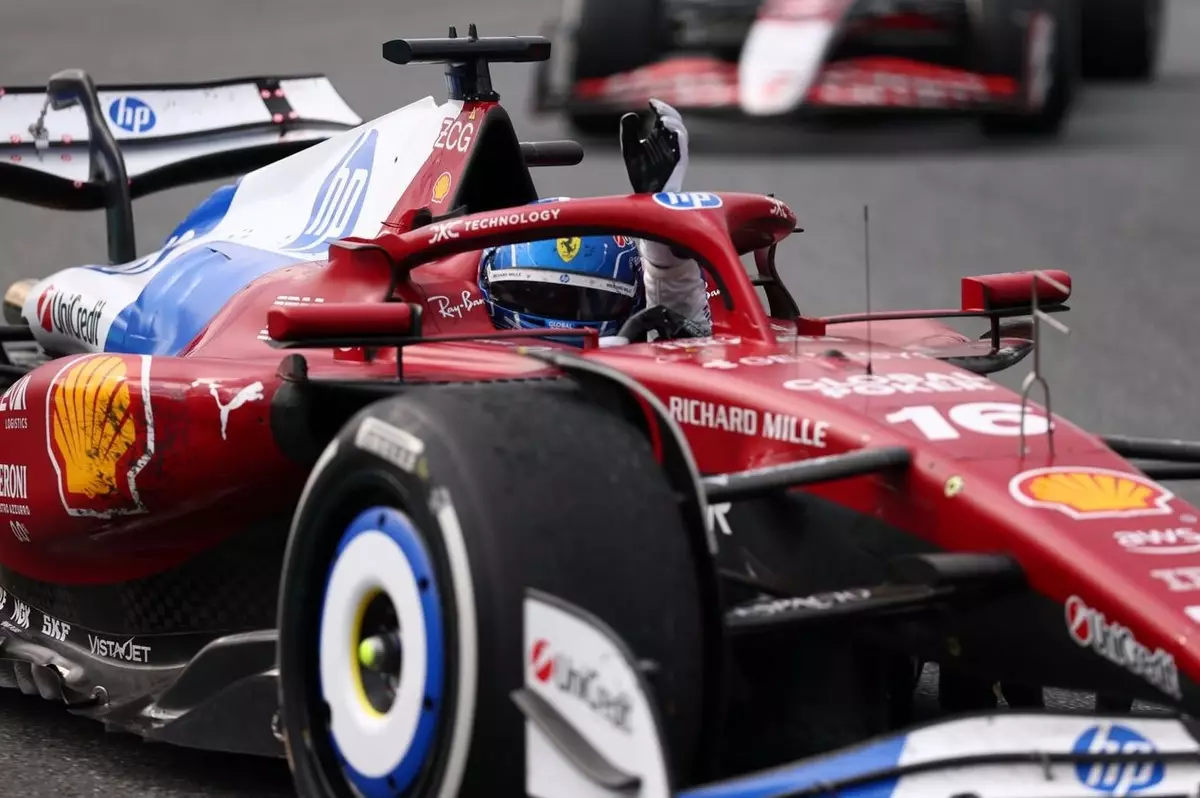In the high-octane world of Formula 1, the dynamics between teammates can be as intricate and unpredictable as the races themselves. The recent Miami Grand Prix exemplified this complexity when Ferrari’s Charles Leclerc and seven-time world champion Lewis Hamilton engaged in a strategic battle that raised eyebrows and sparked conversations around team hierarchy and individual aspirations. The situation unfolded as Hamilton, hampered by his position behind Leclerc and running on medium tyres, voiced his frustrations over team radio, urging Ferrari to allow him to overtake his teammate. This incident is a prime example of how split-second decisions and lack of clear communication can escalate tension on the track.
A Clash of Perspectives
Leclerc’s assertion that he harbors “no bad feelings” towards Hamilton reveals a level of professionalism that is commendable in the cutthroat environment of motorsport. Both drivers had specific goals during the race, and while Hamilton sought an aggressive strategy with medium tyres, Leclerc adhered to a more cautious approach, believing that durability was key. This clash of strategies is not merely about individual ego but highlights the challenges teams face in aligning their drivers’ interests while navigating the rigors of competition. Each driver’s desire to prove themselves can lead to misunderstandings that could ultimately affect the team’s performance.
Leclerc’s acknowledgment that he would have acted similarly to Hamilton serves as a reminder that every driver is motivated by their own competitive nature. Such a viewpoint fosters a sense of camaraderie, even amidst frustrating strategic decisions. “We need to do better,” Leclerc emphasizes, clearly recognizing that, while individual ambition is essential, cohesive team performance must take precedence.
Communication Breakdowns
One of the core issues identified by Leclerc was a lack of preemptive communication, particularly regarding the swap of positions that left both drivers caught in a tactical limbo. He pointed out that the team should have discussed strategy more thoroughly, enabling both drivers to align on their approaches to tire management. This candid reflection exposes a significant flaw in the Ferrari pit wall’s execution, underscoring the importance of effective communication in crucial race scenarios. The potential for confusion increases when drivers are rushed and not fully briefed, leading to missed opportunities and a lack of maximization of performance.
Leclerc’s frustrations about his own tire performance in the dirty air created by Hamilton only fueled the challenges of racing under such conditions. The mental and physical toll of battling for points can skew a driver’s perspective, highlighting that the pressures of competition often extend beyond a mere calculative approach to racing. As Leclerc expressed, the emotional draw of being engaged in a sparring match for positions inevitably complicates a driver’s ability to make rational decisions regarding tire usage and race strategy.
Learning from Mistakes
Looking ahead, one can sense that Leclerc’s reflections on the Miami Grand Prix will serve as a pivotal learning experience for Ferrari. The tenor of his comments, which included a recognition that they “need to regroup as a team,” indicates a commitment to self-improvement. In a sport where the margin for error is razor-thin, understanding the intricate details of race dynamics can be the difference between a podium finish and a disappointing race.
The underlying challenge for Ferrari will be not just improving communication in the heat of competition but also fostering a culture where strategic decisions are made collaboratively rather than reactively. Leclerc’s comments serve as a manifesto for a more synchronized approach to racing—one where both drivers and team management work hand-in-hand to maximize their potential on the track.
As the F1 season unfolds, Leclerc and Hamilton’s experiences in Miami will echo through future races, pushing both drivers towards a better grasp of their racing strategies and underscoring the importance of teamwork in achieving not just individual goals but the overarching ambitions of their prestigious teams. In competitive sports, it is always about advancing, and for Leclerc and Ferrari, the road to improvement after a mixed bag in Miami seems to be just beginning.

